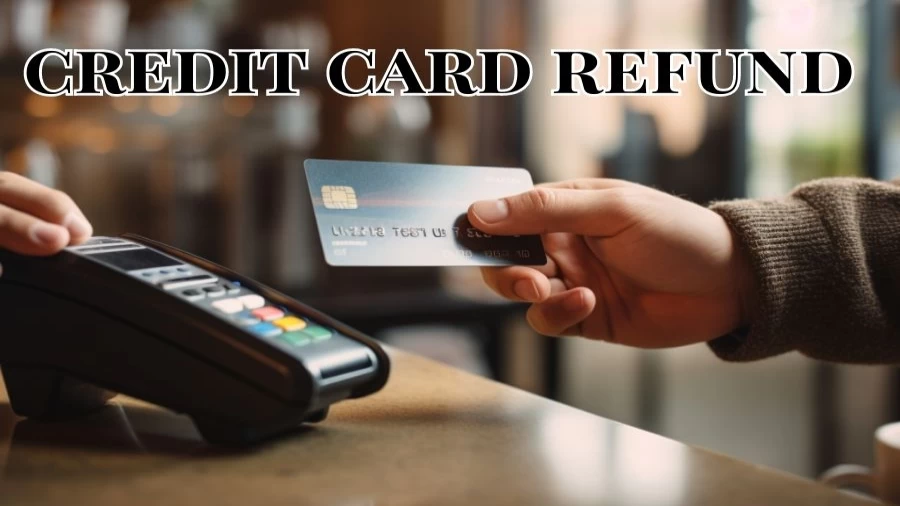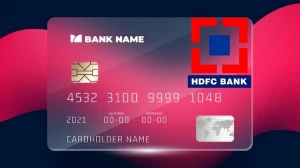
- Home »
- Credit Card »
- Credit Card Refund, How Does a Refund on a Credit Card Work?
Credit Card Refund, How Does a Refund on a Credit Card Work?
Credit card refund requests, approved by merchants, yield account credits tied to transactions where card companies pay merchants, impacting credit; refunds come from merchants returning funds to issuers, excluding foreign transaction fee reimbursement due to processing costs.
by Sangamithra
Published Aug 22, 2023 | Updated Aug 22, 2023 | 📖 8 min read
Credit Card Refund
After making a credit card purchase and subsequently requesting a refund, cash reimbursement is not provided. Instead, an equivalent credit is applied to your account. Typically, this procedure is initiated once the merchant approves the refund request.
In cases where the merchant is unable or unwilling to process the refund, you might explore utilizing return protection as an alternative solution. For specific eligibility criteria and details about return protection, it's recommended to contact your credit card issuer.
How Does a Refund on a Credit Card Work?
To gain a comprehensive understanding of how refunds are applied to your credit card account, it's crucial to comprehend the underlying transaction process. When you use your credit card for a purchase, the merchant is paid by your credit card company, causing a decrease in your available credit until you repay your card issuer through subsequent payments.
Credit card networks mediate the transactions between your card issuer and the merchants where purchases are made. Therefore, for a refund to be credited to your account, the merchant must first send the refund back to your credit card issuer. This process accounts for the typical delay in credit card refunds and also explains why refunds are issued in the original payment method.
In instances of in-store returns, the merchant might retrieve your card details from the receipt, or you'll need to present the same card. Additionally, your card issuer might not refund foreign transaction fees due to processing costs for international purchases, so seeking clarification from them is advisable.
What Happens When You Get a Refund on a Credit Card With Zero Balance?
When you're returning an item, and its purchase amount is the only outstanding balance on your account, the refund process will reset your balance to zero. In a scenario where you've already cleared your card's balance and then receive a refund, your credit account might show a negative balance.
This negative amount will offset future purchases, prioritizing the reduction of this balance. If your card sees limited use or if the negative balance is substantial, it could be wise to request a refund in the form of a check, especially if your card issuer doesn't automatically issue one. This approach helps manage larger negative balances or infrequently used cards effectively.
How Long Does a Credit Card Refund Take?
As return transactions necessitate processing through credit card networks, it's common for the credit to be restored to your account within a few days. The specific timeframe varies based on factors like the return method, card issuer, and merchant, typically ranging from five to 14 business days. If you've done an in-person return, some merchants may expedite the credit, while mailing returns require factoring in shipping time.
It's important to note that if the return isn't processed by your card's billing cycle closing date, it might not appear on that month's statement. If you seek an immediate refund, opting for store credit is an option, but it will maintain the purchase balance on your account. To gauge the anticipated refund duration, referring to the merchant's website for more details is recommended.
Can You Get a Refund on a Credit Card?
Yes, securing a refund on your credit card is possible. When you utilize your credit card for a purchase, the merchant is compensated by your credit card company. Upon returning the purchased item, the merchant will initiate a reimbursement to your credit card account. The refunded sum will be credited back to your credit card account and showcased as a credit entry on your statement.
The duration for receiving the refund can exhibit considerable variation. Ordinarily, it takes around three to seven business days for refunds to materialize on your account following their issuance. Nevertheless, the duration can be influenced by different factors, spanning from the merchant's practices to the bank's procedures. Importantly, if you accrued rewards based on the original purchase, those rewards may likely be revoked upon receipt of the refund.
What Are the Disadvantages Associated With Credit Card Refunds?
Disadvantages Associated with Credit Card Refunds
While receiving a refund through credit card transactions can be seen as a positive outcome, there are potential drawbacks that individuals should be aware of:
Loss of Earned Rewards:
Rewards, such as points and benefits earned from purchases that are subsequently refunded, are typically revoked upon the return. Just as a retailer refunds the purchase amount, credit cardholders are often required to forfeit any rewards linked to the original transaction. This applies to various types of rewards, including sign-up bonuses and incentives based on spending.
Possible Impact on Foreign Transaction Fees:
In cases involving international purchases, individuals may face foreign transaction fees. This is due to the costs incurred by credit card companies when processing transactions in foreign currencies. It's important to note that these fees might not be refunded.
Cardholders should anticipate that foreign transaction fees, in most cases, won't be reimbursed, as the card issuer incurs costs related to currency market transactions for processing these purchases. Navigating these potential downsides is crucial when considering credit card refunds, ensuring that individuals make informed choices while managing their financial transactions.
Are Credit Card Refunds Considered as Payments?
No, Credit card refunds do not qualify as payments, as clarified by experts. Instead, they are categorized as account credits. Thus, even if a refund is issued, it's crucial to meet the minimum payment requirement to prevent missing a payment. In cases where a purchased item is returned after the current billing cycle ends, any accrued interest or related fees may not be offset by the credit.
The credit from the returned purchase will be applied to the bill, but any associated interest and fees will persist due to credit line utilization. The same applies if a return is initiated toward the end of a billing cycle. The refunded amount might not reflect in the balance before the next payment deadline. Consequently, making at least the minimum payment is advisable to avoid late fees.
If a balance is carried on the credit card when a refund is processed, the credit will reduce the total owed amount for the next billing cycle. Even with a $0 balance, the credit will be applied, leading to a negative balance. For instance, a $50 refund on a $0 balance would result in a -$50 balance. This credit is then used for future purchases.
If a subsequent purchase of $70 is made, the balance would shift from -$50 to a positive $20. In certain situations, requesting a refund directly from the card issuer is possible. This is especially useful when immediate funds are needed for other bills or when a card has a negative balance over months. In such cases, contacting the issuer for a mailed check is a viable option.
What Impact Does a Credit Card Return Have on Your Credit?
Receiving a credit card refund typically bodes well for your credit score, as it contributes to reducing your outstanding balance. The "amounts owed" category holds a 30% weight in your credit score calculation, and a lower credit utilization ratio is beneficial.
A lower ratio signifies that you are not heavily reliant on credit to manage your expenses. For instance, consider a scenario where your credit limit stands at $1,000 and your balance amounts to $300, resulting in a credit utilization of 30%.
If you subsequently receive a $100 refund from a return, your utilization rate would decrease to 20%, thus positively impacting your credit score. It's important, however, for the refund to be processed before your balance is reported to credit bureaus; otherwise, your card might still reflect the higher balance even with an impending return.
What is the Process for Requesting a Credit Card Refund?
To initiate a credit card refund, consider these actions:
Review Refund Policies: Begin by checking the merchant's refund policies or service agreements. Familiarize yourself with the current procedures. Some merchants offer online refund requests or email options to expedite the process and avoid prolonged hold times on the phone.
Prepare Documentation: Collect essential documents such as purchase receipts, confirmation numbers, or any relevant records that validate your transaction.
Provide Information: When contacting the merchant, having your credit card details readily available can be advantageous. This may be especially important if the merchant doesn't retain card information. Whether communicating in person, over the phone, or online, being prepared ensures a smoother process.
Await Merchant Response: After you've presented your case, the merchant will determine whether your situation meets their refund criteria. If your request is approved, allow a few days for the refund process to finalize.
Follow-Up When Necessary: If no response is received within approximately two weeks, consider reaching out to the merchant again. Alternatively, you can contact your credit card issuer for guidance on the next steps. In certain cases, your credit card issuer might initiate a chargeback process on your behalf.
Credit Card Refund - FAQ
1. How do credit card refunds work?
A credit card refund involves merchants issuing account credits, not cash reimbursement, after returning purchases.
2. Can credit card refunds affect my credit score?
Yes, credit card refunds can improve your credit score by lowering your outstanding balance and reducing credit utilization.
3. Can I get a refund for foreign transaction fees?
Generally, foreign transaction fees are not refunded due to the costs associated with processing international purchases.
4. Is a credit card refund considered a payment?
No, credit card refunds are account credits, not payments, so making minimum payments is still necessary.
5. How long does a credit card refund take?
Credit card refunds typically take 5 to 14 business days, depending on factors like the merchant and card issuer.




